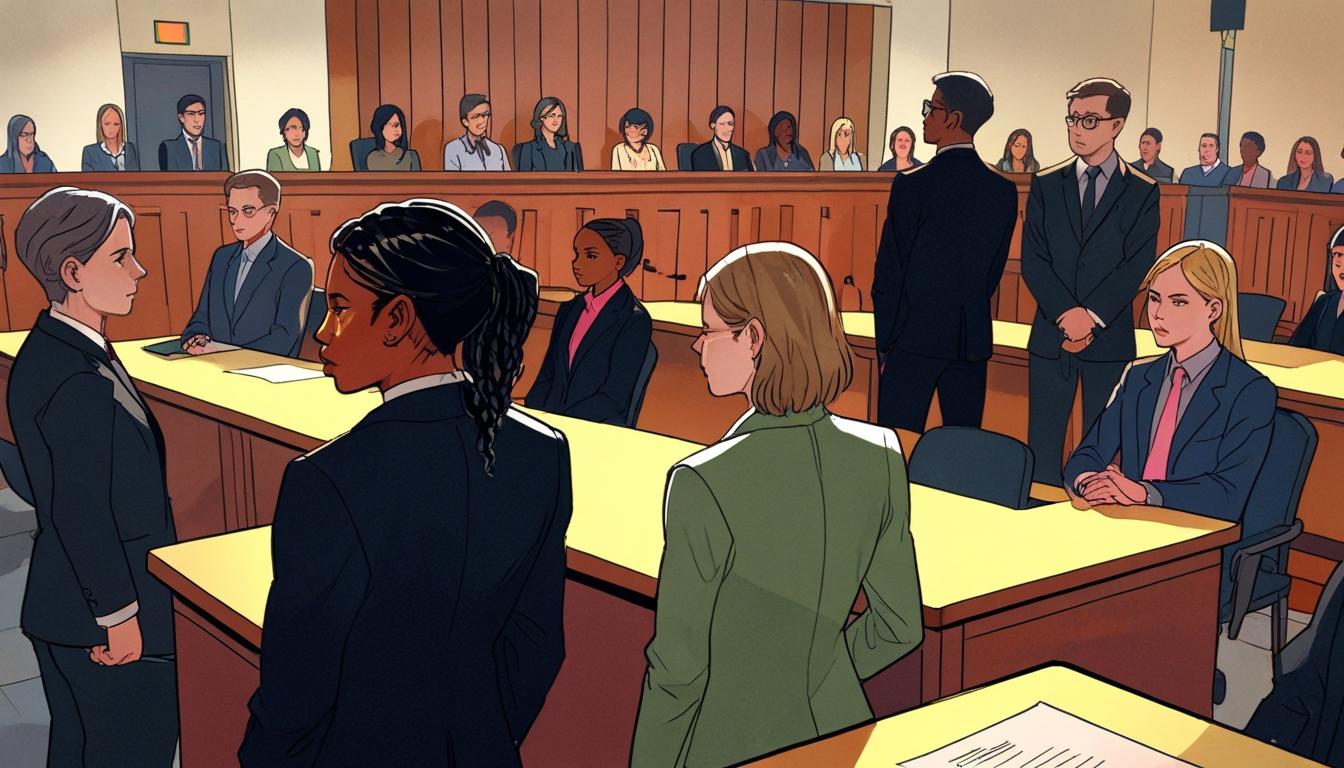Belfast Crown Court has embarked on a significant legal challenge involving a group of 23 plaintiffs alleging discrimination against Robinson’s Bar. The action stems from events that transpired on April 16, 2023, following a Let Women Speak rally, attended by notable figures including Graham Linehan, co-creator of the acclaimed series Father Ted.
The plaintiffs claim they were unlawfully refused service due to their beliefs regarding gender, a situation which has ignited debate about discrimination laws in the UK. The case has gained momentum in light of a recent ruling by the UK Supreme Court affirming that the term "sex" in the Equality Act refers specifically to biological sex. This decision has implications far beyond the immediate case, potentially affecting workplaces, schools, service providers, and sports associations by reinforcing the exclusion of transgender individuals from single-sex facilities that align with their gender identity, even when they possess gender recognition certificates.
Simon Chambers, a solicitor representing the plaintiffs, expressed optimism about the case's trajectory, indicating that the Supreme Court's ruling has bolstered their position. Speaking to The Irish Times, he remarked that his clients’ exclusion from the bar should reflect “the collective madness which prevailed at the time.”
The plaintiffs contend that after attending the rally, where they displayed logos supporting their beliefs, they were denied further service at the bar, despite having been there for approximately 90 minutes. Among the group, one participant is seeking £20,000 in damages, asserting that he was assaulted during the incident and now bears permanent scars. Additionally, two other witnesses to the alleged assault are claiming compensation of up to £8,000.
The eight lead cases have been strategically selected to encompass a comprehensive view of the incidents that occurred. Each member of the group is pursuing claims of direct discrimination based on their beliefs regarding gender.
The bar's owner, Wine Inns Ltd, has firmly denied the allegations of discrimination, asserting that any decision not to serve the plaintiffs was unrelated to their political opinions. The company also disputes the claims surrounding the alleged assault, countering that the plaintiff’s conduct created apprehension among staff members.
As this legal battle unfolds, it highlights the complex intersection of gender identity, discrimination law, and public expressions of belief in contemporary society. With the court now set to deliberate on these pivotal claims, the outcome may have far-reaching implications for similar cases in the future.
Source: Noah Wire Services
